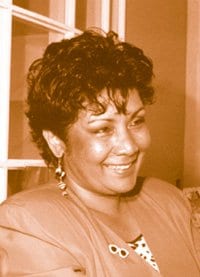Tim Stevenson wants the federal government to thoroughly consult the gay community before it finalizes its new sex offender registry.
The soon-to-be-released national registry will keep track of convicted sex offenders by forcing them to register their address and phone number with police after they’re released from prison.
Without proper consultation, Stevenson is worried that the federal government’s new law might cast “too wide a net” and drag people convicted of victimless sex crimes, such as consensual public sex, into the registry, alongside dangerous offenders.
It’s a pitfall his own government narrowly avoided just last year. Stevenson was part of BC’s NDP government when it introduced a similar sex offender registry in the spring of 2001. That bill was just one step from becoming law when Xtra West raised concerns about classifying victimless sex acts in the same category as dangerous sex offences. The NDP changed its bill at the last minute to exclude consensual sex offences.
Stevenson hasn’t forgotten the lesson. Though BC never implemented its sex offender registry (the new Liberal government opted to wait for the national one, instead), Stevenson hopes the federal government will pay attention to the NDP’s experience.
The government has yet to specify which sex offences it plans to include in its new national registry. But Liberal MP Hedy Fry doesn’t think the gay community has anything to worry about.
“I think what we’re talking about here are high-risk offenders,” says the Vancouver Centre MP, who also sits on the federal justice committee that will review the bill after it’s introduced.
Only convicted sex offenders who spend time in prison will have to register with police, Fry explains. Though some police forces in Canada still sometimes arrest gay men having sex in public, Xtra West could not find any recent cases of incarceration.
Still, Fry says she will keep an eye on the bill.
Section 159 of the Criminal Code of Canada still classifies consensual anal intercourse as a sex offence, if the participants are younger than 18 years of age or if more than two people are present. That means consensual three-somes and other group scenes-even in the privacy of one’s own bedroom-are against the law in Canada and the participants are still subject to arrest.
It’s just that type of “sex offence” that Stevenson doesn’t want to see included in the new national registry.
“One would hope that’s not what the federal legislation is intending,” the United Church minister and newly elected city councillor says.
Murray Mollard, executive director of the BC Civil Liberties Association (BCCLA), shares Stevenson’s concerns regarding which offences will be registered.
But Mollard’s concerns don’t end there. There’s also the whole privacy question, he says. Keeping track of people’s lives not only invades their privacy but makes them vulnerable to vigilantism.
Fry says that would be true if the new registry were going to be accessible to the public. In fact, she says she would be “very opposed” to a public registry because that would violate the offenders’ right to privacy. But the new registry will be for police use only-and that’s a justifiable invasion in order to keep society safe, she says.
Mollard is not so sure. “This [registry] offends the principle that if you’ve done your time, and paid your debt to society, you have a right to be left alone.”
Though dangerous offenders can present a legitimate problem, Mollard doesn’t know if this is the best way to deal with that problem. “Is this just political showmanship?” he asks. This may be a “hot button issue for the electorate,” he continues, but is this an appropriate response?
The federal government is scheduled to introduce its new sex offender registry this week.

 Why you can trust Xtra
Why you can trust Xtra


